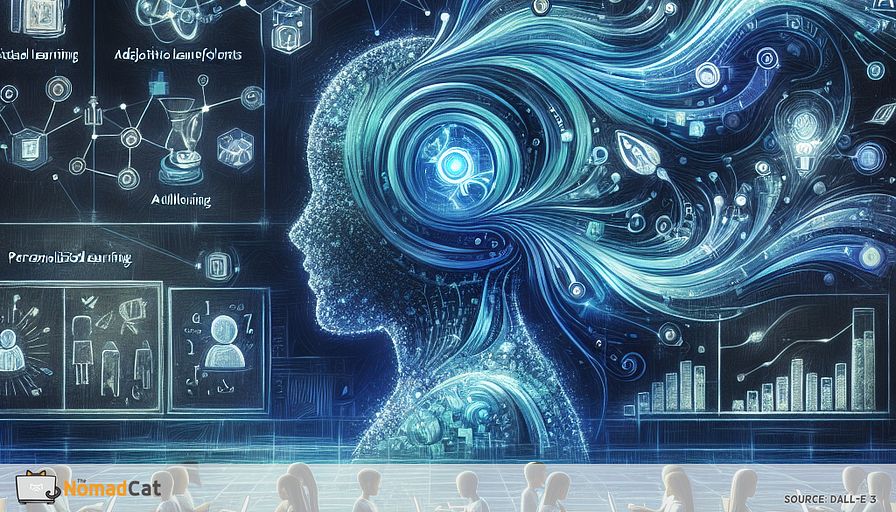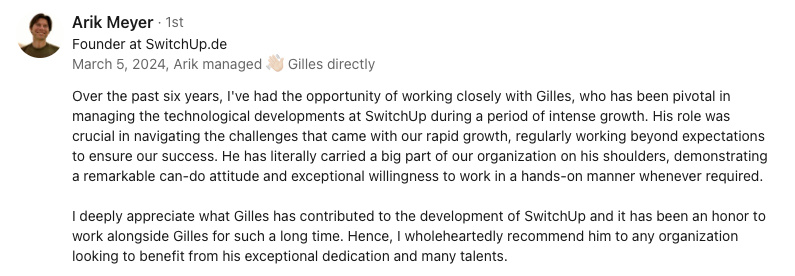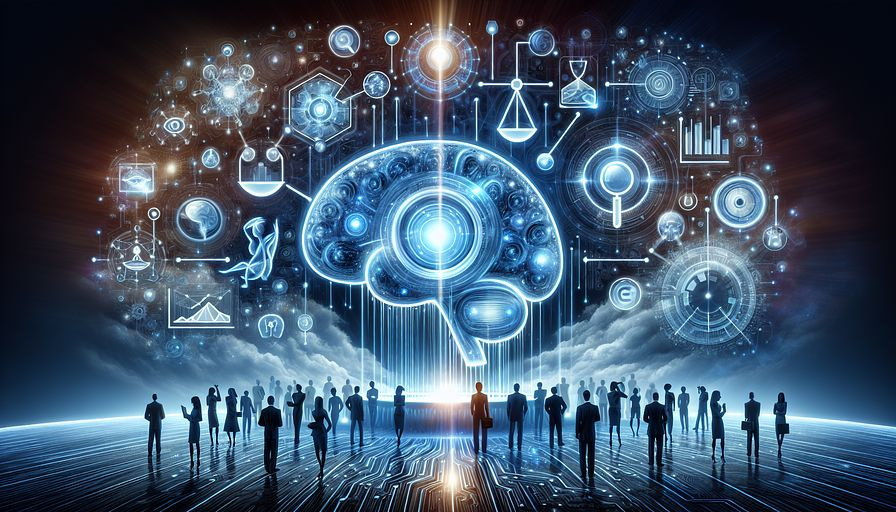Abstract:
The article discusses the transformative impact of AI on education, emphasizing its role in personalizing learning experiences and improving educational outcomes. AI tools, such as Intelligent Tutoring Systems and Adaptive Learning Platforms, tailor lessons to individual students' needs, making the learning process more engaging and effective. Examples like DreamBox Learning and Carnegie Learning's MATHia illustrate how real-time data enhances student engagement by adjusting content to suit different learning styles. AI integration in Learning Management Systems further personalizes education by providing custom learning paths and insights, allowing teachers to address students' struggles proactively. The article highlights the benefits of AI-driven personalization, particularly in underserved communities, where it boosts academic performance and student retention. Global initiatives like Mindspark in India demonstrate AI's potential to improve education quality in low-income areas. AI also helps overcome educational barriers by offering multilingual support and adapting to diverse learning needs, promoting inclusivity. The article acknowledges the ethical considerations of AI in education, such as data privacy and bias prevention, and explores future directions, including immersive technologies like VR and AR. AI is portrayed as a pivotal force reshaping education by providing personalized, inclusive, and scalable solutions.
Education is rapidly evolving, and AI plays a significant role in this transformation. With AI, students receive lessons tailored to their learning speed and style, while teachers can monitor progress and adjust plans as necessary. Let's explore how AI is enhancing education for everyone, particularly in underserved communities.
The Transformative Role of AI in Education
AI is revolutionizing education by making learning more personal and effective. Teachers can now customize lessons to meet each student's needs, making learning more engaging and successful.
AI Technologies Powering Education
AI tools like Intelligent Tutoring Systems and Adaptive Learning Platforms are transforming student learning experiences. These tools personalize lessons based on student interactions. For instance:
- Intelligent Tutoring Systems: Function like personal tutors, allowing students to learn at their own pace.
- Adaptive Learning Platforms: Utilize real-time data to adjust lessons, catering to various learning styles and promoting inclusivity.
Enhancing Engagement Through Real-Time Analytics
Platforms such as DreamBox Learning and Carnegie Learning's MATHia leverage real-time data to enhance student engagement. DreamBox adapts lessons for K-8 math students, while MATHia provides personalized math assistance. These platforms not only teach but also maintain student interest by promptly addressing their needs.
Learning Management Systems with AI Integration
AI integration in Learning Management Systems (LMS) further personalizes education. These systems offer custom learning paths and insights, enabling teachers to focus on areas where students struggle. This proactive approach improves student retention and outcomes by allowing timely support.
Data-Driven Insights for Educators
AI provides teachers with valuable insights into student performance. By analyzing data, teachers can identify learning patterns and refine their strategies. This data-driven approach helps tailor teaching methods to individual students, enhancing education quality.
Real-Time Feedback and Curriculum Adjustment
AI enables teachers to give instant feedback and adjust lessons in real time. This quick response ensures students receive the support they need immediately, keeping the learning environment flexible and focused on student success.
Personalization Benefits
Education systems worldwide are increasingly adopting AI-driven personalization, which adapts learning experiences to individual needs. This approach is particularly beneficial in underserved areas.
Success Stories of AI in Education
Platforms like ALEKS demonstrate how AI personalization improves learning outcomes. ALEKS identifies each student's strengths and weaknesses, providing immediate feedback and tailored questions. Such platforms have shown success, highlighting the value of personalized education.
Engagement and Performance in Underserved Communities
AI tools have positively impacted underserved European communities by improving academic performance and increasing student engagement. Tailoring content to specific needs makes learning more relevant, boosting retention rates.
Global Examples of AI Adoption
Mindspark in India illustrates AI's potential to enhance education quality in low-income areas. Programs like these showcase AI's capacity to improve learning and provide more equitable opportunities globally. In Europe, initiatives such as the European Schoolnet Academy are using AI to address educational challenges, offering tailored resources to teachers and students in diverse regions.
Enhancing Learner Engagement
AI not only improves outcomes but also boosts engagement by personalizing content, making learning more enjoyable and effective.
Personalized Content for Motivation
AI customizes educational content to align with students' interests, enhancing motivation. This creates a dynamic learning environment that is more engaging than traditional methods.
Interactive Learning Journeys
Interactive content and personalized learning paths make education more immersive and enjoyable. AI platforms adapt to student pace and incorporate elements like virtual reality for hands-on learning experiences.
Overcoming Barriers
AI helps dismantle educational barriers, such as language differences and diverse learning needs, providing equal learning opportunities.
Language and Cultural Barriers
AI tools are instrumental in overcoming language and cultural challenges. Machine translation and natural language processing offer multilingual support, enabling students to access materials in their languages and fostering inclusive learning environments.
Adapting to Diverse Learning Needs
AI accommodates students' varied backgrounds and learning speeds. By analyzing data, it identifies struggles and adjusts the curriculum, providing targeted support when necessary. This ensures inclusivity and helps all students thrive.
Exploring AI Solutions in Education
AI offers scalable solutions that transform educational access in underserved regions.
Scaling AI Solutions
AI can be expanded across regions, reaching numerous learners efficiently. Adaptive platforms function in various languages and cultural contexts, bridging educational gaps.
Cost Implications
AI presents cost benefits over traditional methods by reducing the need for physical resources, making education more accessible in remote areas. This leads to better economic prospects by lowering costs and increasing graduation rates.
Ethical Considerations in AI Education
As AI shapes education, ethical concerns such as data privacy and fairness need to be addressed.
Data Privacy and Security
Protecting student data is crucial. Schools must ensure privacy and security, building trust with students and parents. Regular audits and stakeholder engagement help maintain data integrity.
Preventing Bias in AI
AI tools must be designed to prevent bias. Utilizing diverse datasets and ongoing monitoring ensures fair outcomes. Engaging educators and students in development helps align technology with educational goals.
Future Directions in AI and Education
AI is opening new possibilities for education, making learning more innovative and transformative.
Emerging Trends in EdTech
AI-powered immersive experiences like virtual reality (VR) and augmented reality (AR) offer engaging ways to learn. These technologies help students explore complex concepts interactively, enhancing global collaborative learning.
Investment Opportunities
AI in education presents opportunities for investors. Personalized learning platforms are in demand, supported by government incentives, aligning investment strategies with educational innovation goals.
AI is a transformative force in education, reshaping teaching and learning. It personalizes lessons, provides real-time feedback, and breaks down barriers, making education more effective and inclusive.
You might be interested by these articles:
- Bridging Gaps with Digital Learning
- Empowering Marginalized Communities Through Tech Education
- Bridging Cultural Gaps in Education Through Inclusive Strategies





